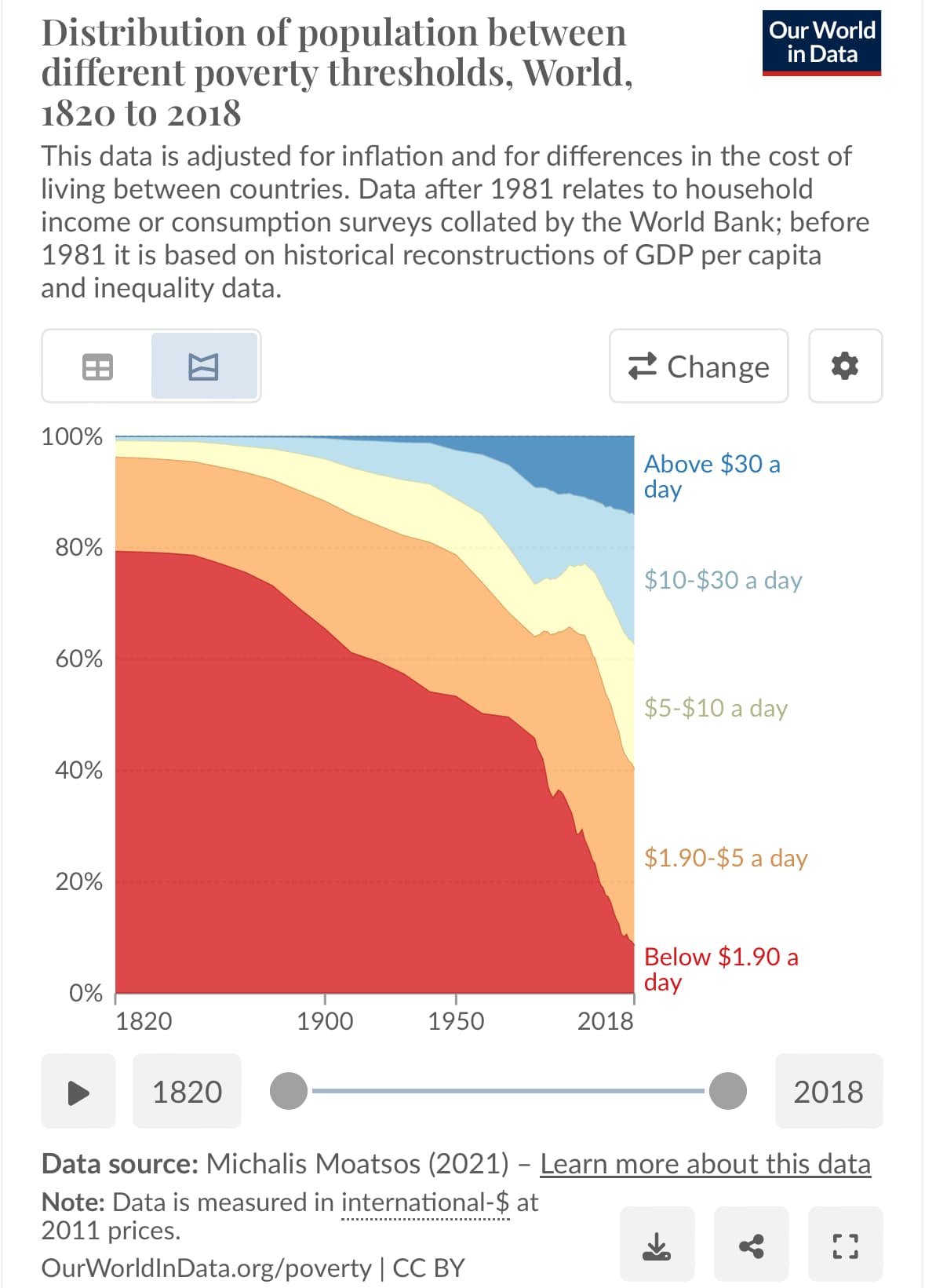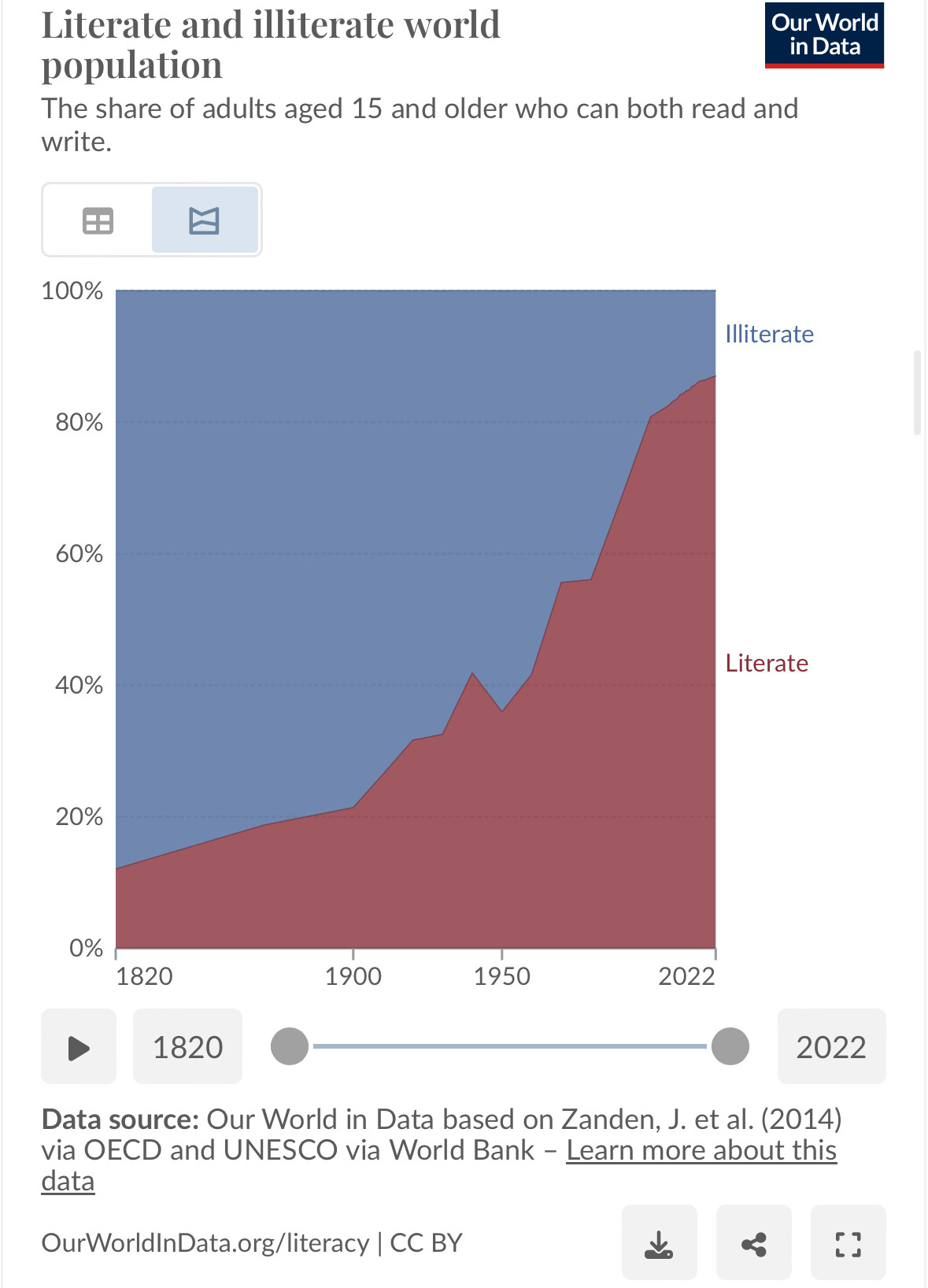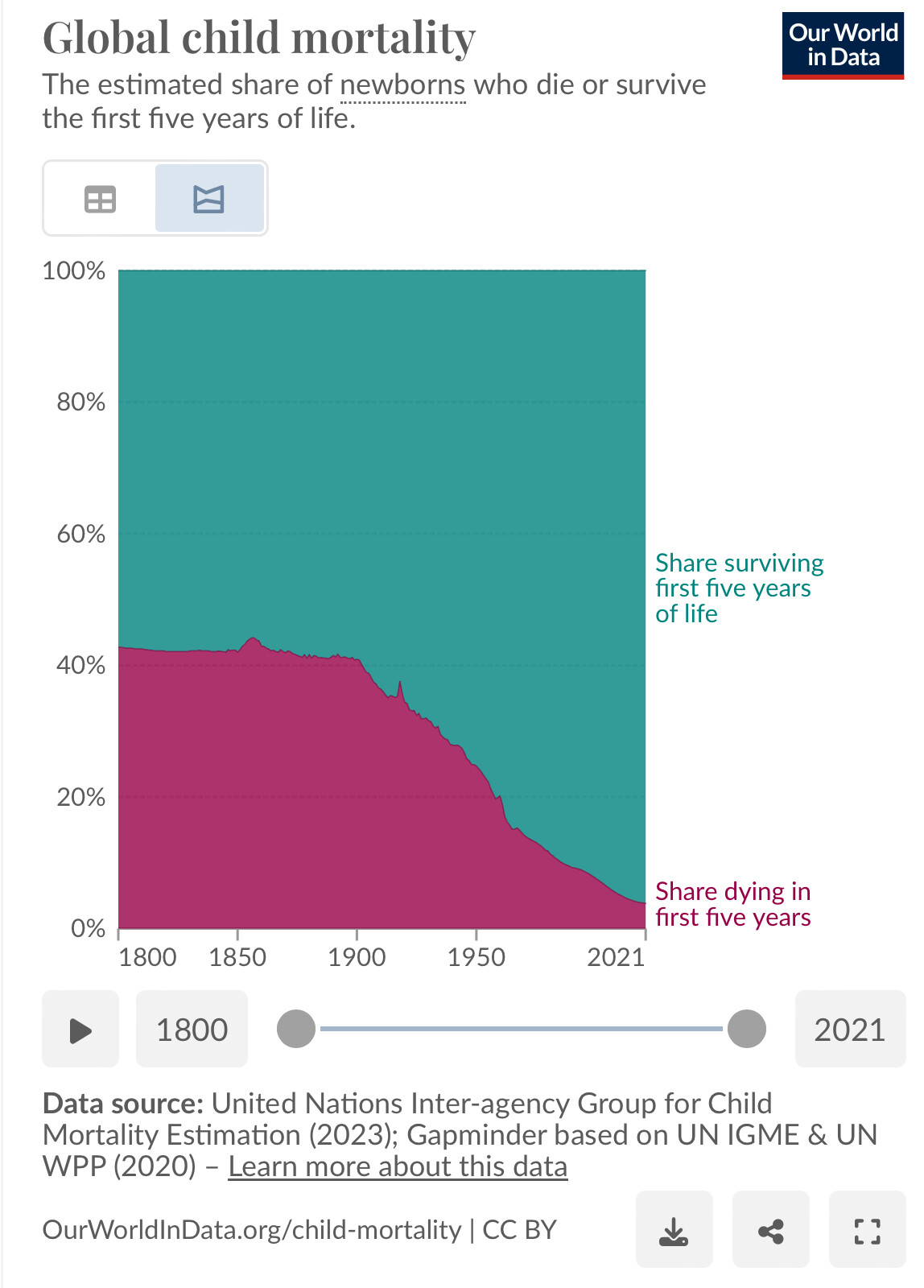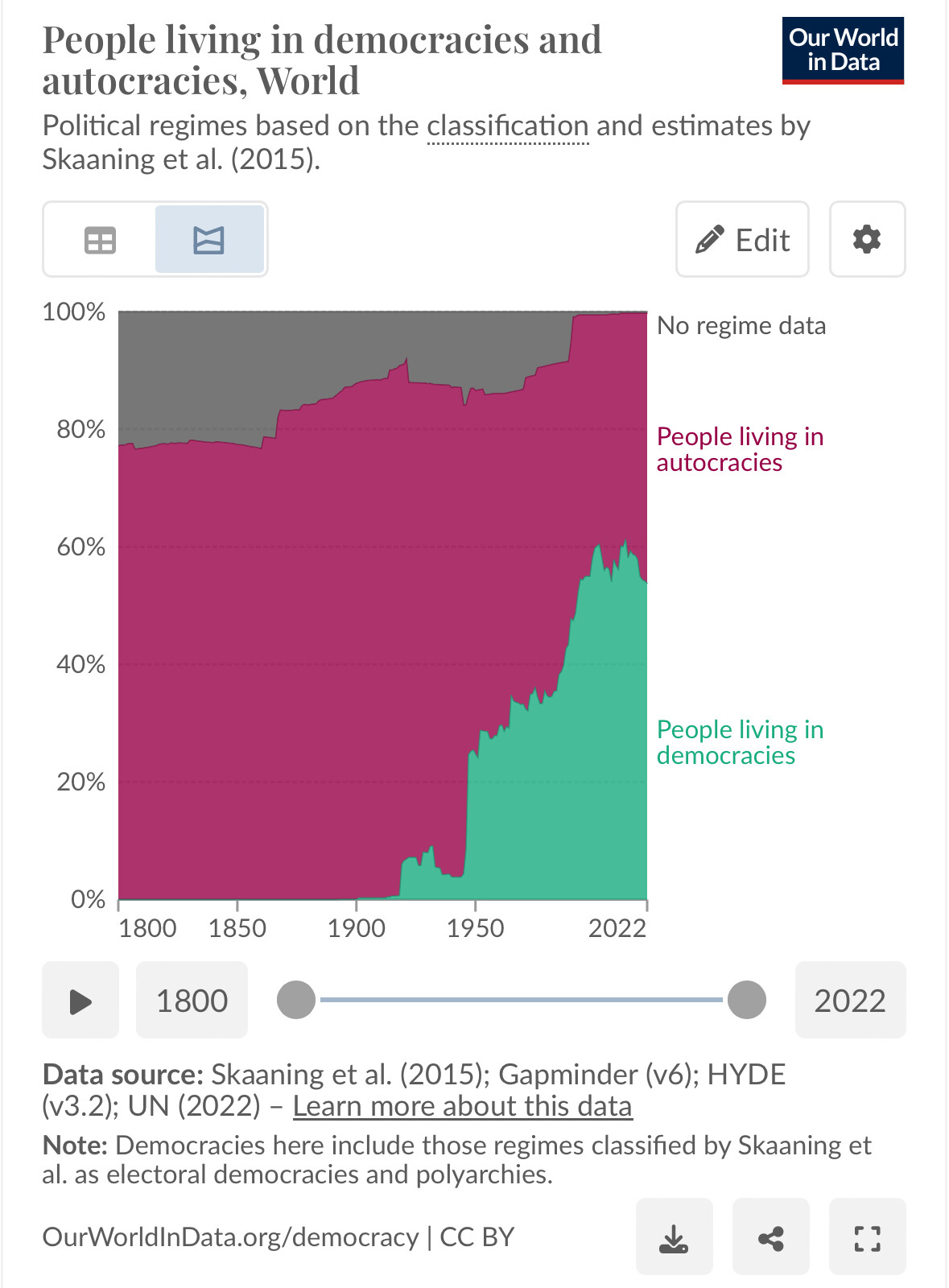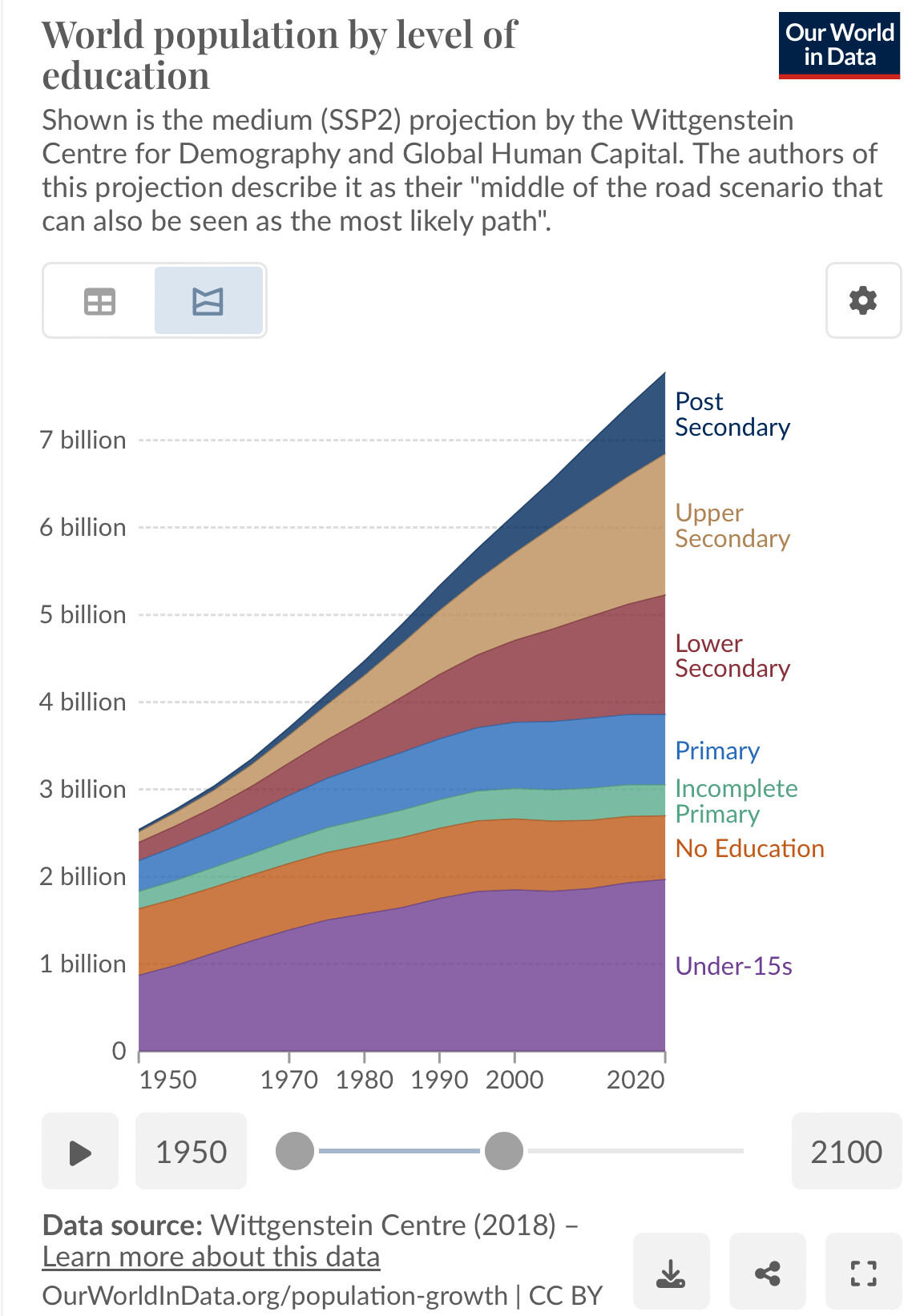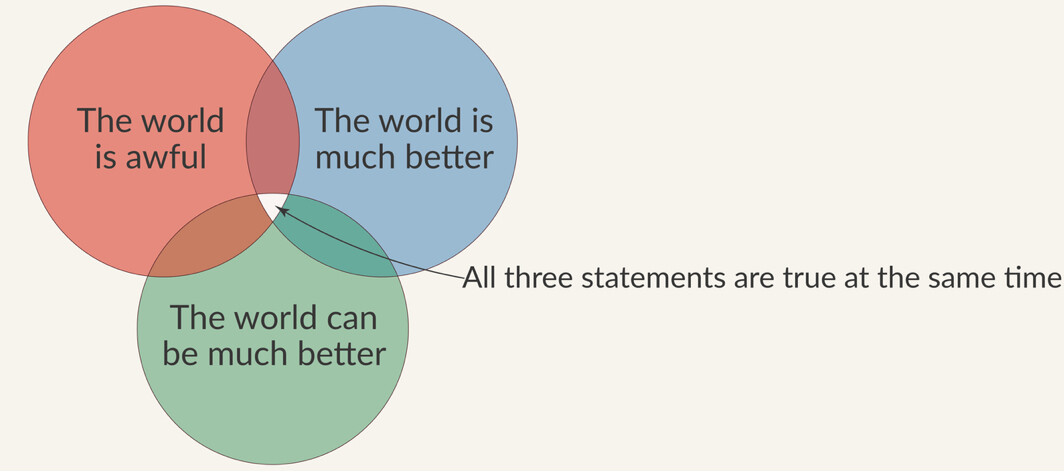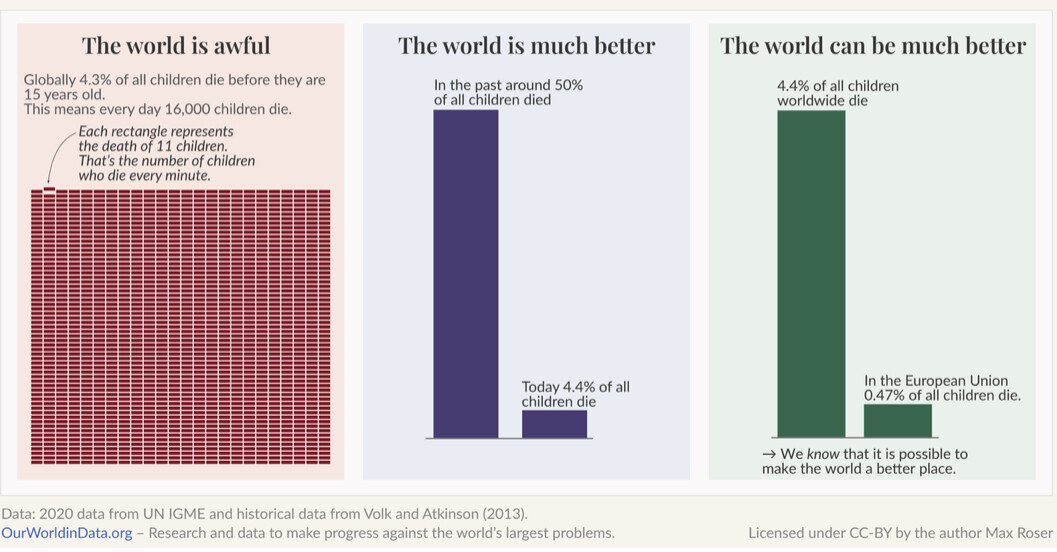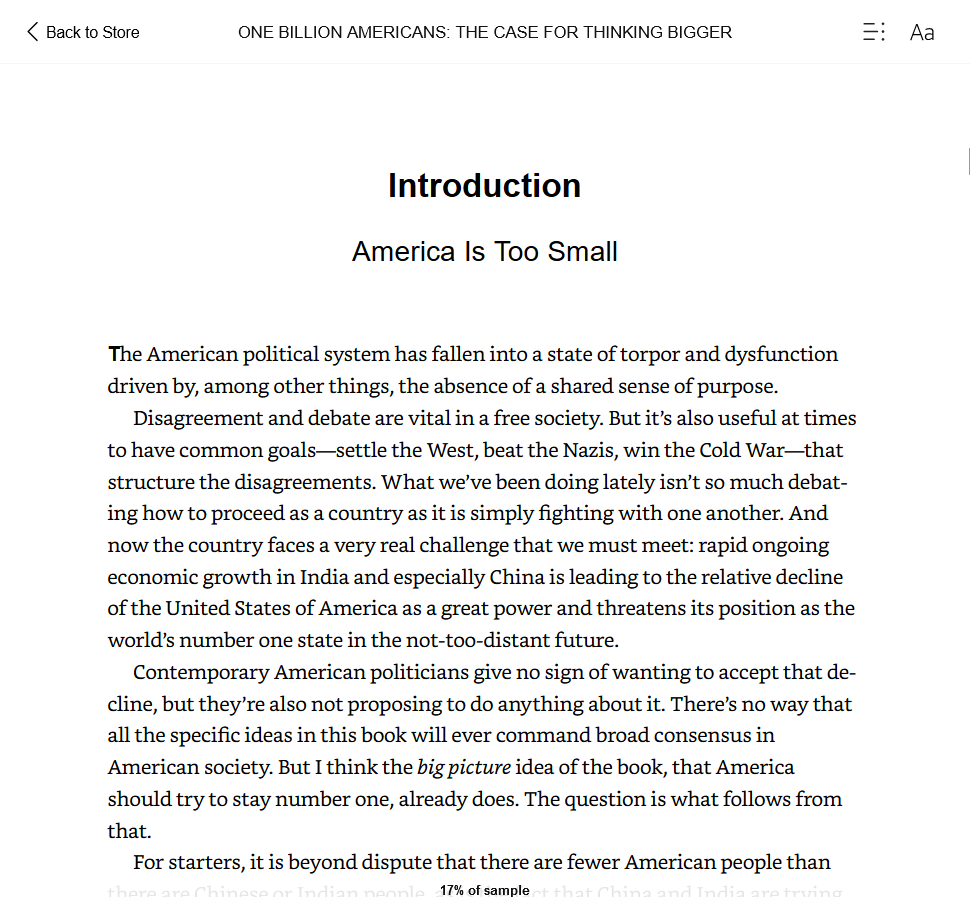There’s always the option of becoming a revolutionary.
This is an interesting and helpful reminder.
You’re absolutely right, most of the news we see is about all the problems of the world, and its easy to get negative on the global situation even while things are improving in many areas, perhaps most areas. Good news and progress definitely does not get covered or reported on as frequently as the negative or threatening news and scenarios.
And, while we may think we know our own biases, I suspect its a lot harder to know our own biases than we might think. I recall studies suggest that most people think they are better than average drivers… and that trend probably carries over to many other areas of life.
It all reminds me of that famous quote… “its really hard to make predictions… especially about the future”. ![]()
Exactly! First we have an image of what we fear. We return to that image again and again. It becomes a concept. We share it, it goes viral, then Mother Nature (universal conciseness?) gets it materialized. It responds to our fears, interpreting them as our desire and we get what we “wished” for. Be careful what you wish for. AI most likely will shape and direct our wishes.
I think someone’s state of mind matters more than anything, if someone’s satisfied they are not going to perceive doom and gloom of the same degree even if they could rationally understand it.
The most plausible future is one where polar ice caps melt, most coastal cities are deluged by rising seas, we burn the planet down, and end civilization. 8C is already baked into the cake, even if no more carbon pollution happens. see:
https://csas.earth.columbia.edu/
Another doomsday story as any other in the history of mankind.
Assuming something bad could happen is what has kept our species alive.
True, but I don’t think our minds have quite evolved to deal with the steady onslaught of bad news on our cell phones 24 X 7. ![]()
@RapAdmin and @KarlT - I found this interesting
Even in areas where the numbers are clear improvements our societies generally think things have gotten worse:
when a recent survey asked*** “All things considered, do you think the world is getting better or worse?”*** the results were predictably bleak.
In Sweden only 10% thought things are getting better, and in the U,S., it was only 6%*. Hardly anyone thinks the world is getting better.
And yet the facts show otherwise. In a powerful study entitled “The short history of global living conditions and why it matters that we know it” by Max Roser, an economist at the University of Oxford and the founder of Our World in Data, we learn that on virtually all of the key dimensions of human material well-being—poverty, literacy, health, freedom, and education—the world is an extraordinarily better place
Even the decline of global extreme poverty — by any standard one of the most crucial developments in our lifetime — is only known by a small fraction of the population of the UK (10%) or the US (5%).
In both countries, the majority of people think that the share of people living in extreme poverty has increased. Two thirds in the US even think the share in extreme poverty has ‘almost doubled.’
Despite the picture being clear:
Yes - Steven Pinker (MIT) written on this general topic, and wrote a good book on how the trend in violence and war has been very positive for a long time, which was widely covered in the press at the time:
Steven Pinker
Why Our World Is Getting Better
Why are we such a pessimistic species? A question that falls at the feet of superstar psychologist and author Steven Pinker time after time.
Contrary to popular belief our world is getting better, not worse and this seems to be a hard pill to swallow for a lot of us. In his juggernaut release of 2011, The Better Angels of Our Nature, Pinker made the case that violence, in general, has steadily declined over time, presenting six major causes for this.
This is one thinker that wants the data to do the talking rather than his words. In his latest book Enlightenment Now, he continues this number fuelled charge for reason, going as far to say that the advanced benefits we’re experiencing are being “wasted on the crappiest generation of spoiled idiots”. We are far better off today than we have ever been. But we don’t seem to be paying attention.
There are tradeoffs along the way, existential anguish seems to be on the rise, innovation is pushing us into an unknown stratosphere, but overall our lives are a picnic compared to a century or two ago.
Part of this serenity we’re experiencing is what Pinker has coined the long peace much to the ire of contemporary thinkers such as Nassim Nicholas Taleb and John Gray, but as you will see in this dense chat, Pinker remains an important ally to rationalism, operating on an island, calling on all of us to awaken from our gloomy stupor.
Book: The Better Angels of Our Nature: Why Violence Has Declined
Faced with the ceaseless stream of news about war, crime, and terrorism, one could easily think we live in the most violent age ever seen. Yet as New York Times bestselling author Steven Pinker shows in this startling and engaging new work, just the opposite is true: violence has been diminishing for millennia and we may be living in the most peaceful time in our species’s existence. For most of history, war, slavery, infanticide, child abuse, assassinations, programs, gruesome punishments, deadly quarrels, and genocide were ordinary features of life. But today, Pinker shows (with the help of more than a hundred graphs and maps) all these forms of violence have dwindled and are widely condemned. How has this happened?
This groundbreaking book continues Pinker’s exploration of the essence of human nature, mixing psychology and history to provide a remarkable picture of an increasingly nonviolent world. The key, he explains, is to understand our intrinsic motives - the inner demons that incline us toward violence and the better angels that steer us away - and how changing circumstances have allowed our better angels to prevail. Exploding fatalist myths about humankind’s inherent violence and the curse of modernity, this ambitious and provocative book is sure to be hotly debated in living rooms and the Pentagon alike, and will challenge and change the way we think about our society.
https://www.amazon.com/The-Better-Angels-of-Our-Nature-audiobook/dp/B005SA64YS/
Perhaps it’s also because we humans have difficult holding more than one concept in our mind at the same time without feeling contradictions and our mind simplifying and just choosing one of multiple true concepts:
The world is awful. The world is much better. The world can be much better.
It is wrong to think these three statements contradict each other.
The world is awful. The world is much better. The world can be much better
We need to see that they are all true to see that a better world is possible.
The world is awful. The world is much better. The world can be much better. All three statements are true at the same time.
Discussions about the state of the world too often focus on the first statement
A pushback on this narrative takes it to the other extreme, which is equally damaging. Solely communicating the progress that the world has achieved becomes unhelpful, or even repugnant, when it glosses over the problems people are facing.
But to see that a better world is possible, we need to see that both are true at the same time: the world is awful, and the world is much better
To illustrate what I mean, I will use the example of one of humanity’s biggest tragedies: the daily deaths of thousands of children.
The world is awful
Globally, 4.4% of all children die before they are 15 years old.
This means that 5.9 million children die every year. These are 16,000 dead children on any average day, 11 children every minute.2
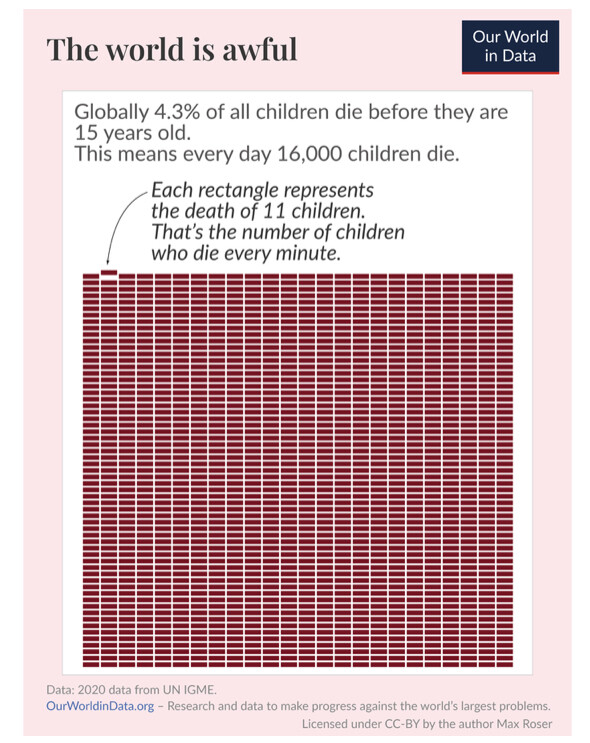
Clearly, a world where thousands of tragedies happen every single day is awful.
The world is much better
…it is hard to imagine how dire living conditions once were, making it difficult to grasp just how much the world has changed.
Data can help to bring the scale of change to mind. Historians estimate that in the past, around half of all children died. This was true until the 19th century no matter where in the world a child was born.
It’s hard to imagine, but child mortality in the very worst-off places today is much better than anywhere in the past.
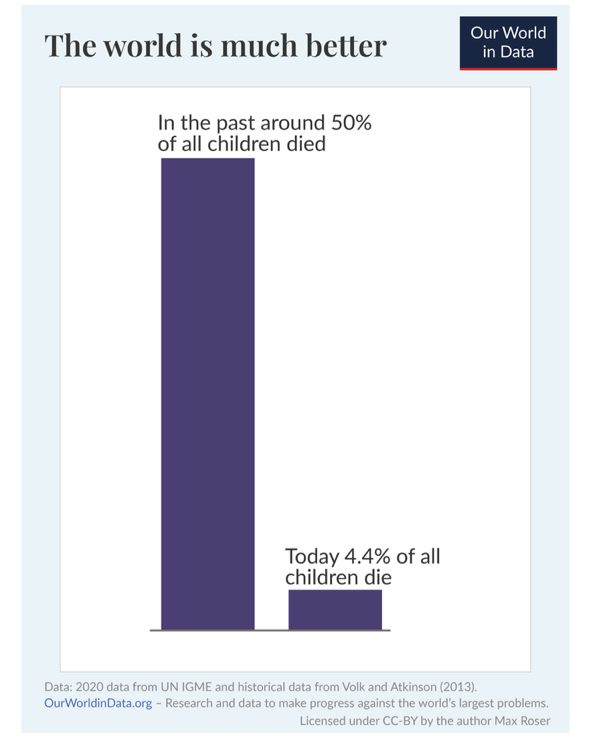
Unfortunately, long-run data on how living conditions have changed is rarely studied in school and rarely reported in the media. As a result, many are entirely unaware of even the most fundamental positive developments in the world.
The world can be much better
Progress over time shows that it was possible to change the world in the past, but one may wonder if this progress can continue into the future.
Perhaps we were born at that unlucky moment in history at which progress has to come to a halt?
Studying the global data suggests that the answer is no. It is possible to make the world a better place.
The best-off places show that extremely low child mortality is not just a possibility but already a reality.
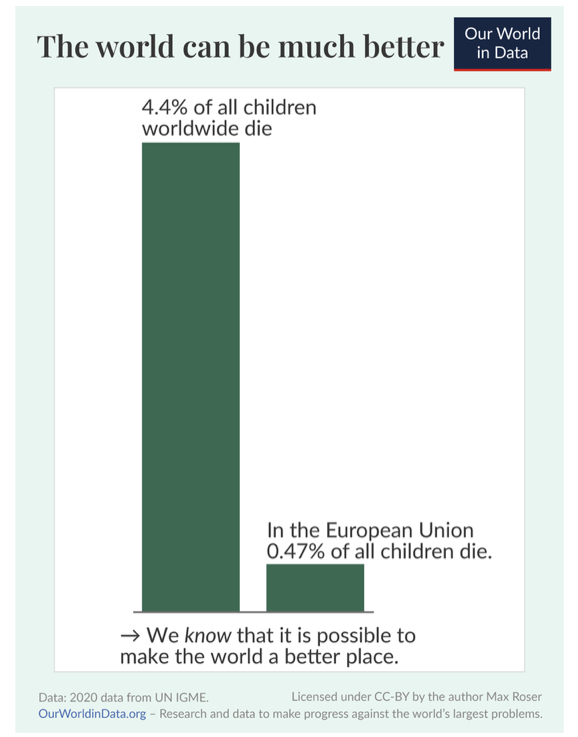
If we want more people to dedicate their energy and money to making the world a better place, then we should make it much more widely known that it is possible to make the world a better place.
For this, we have to remember that all three statements are true at the same time:
You can do that for me, I’ll relax. I am just an average shmuck, fellow comrade, no hero.
India GDP is accelerating, they have everything in place.
I think the reason for India’s success recently has been due to their sales of generic drugs overseas. ![]()
@Neo you make great points. I live in the US. While the world’s living conditions have improved significantly, I don’t see that where I live. I see a country on the brink of socialism, fascism, economic depression, and widespread homelessness. Not to mention crime and obesity.
Here’s a highly plausible tomorrow:
I haven’t added everyone up, but there may aleady be one billion Americans.
Really should be phrased: ‘Mil millones de ciudadanos estadounidenses’
Do read the sample on Amazon.
And following on from that -
The entire California coast could look like Singapore or Hong Kong, and there’s no rational reason why it shouldn’t.
